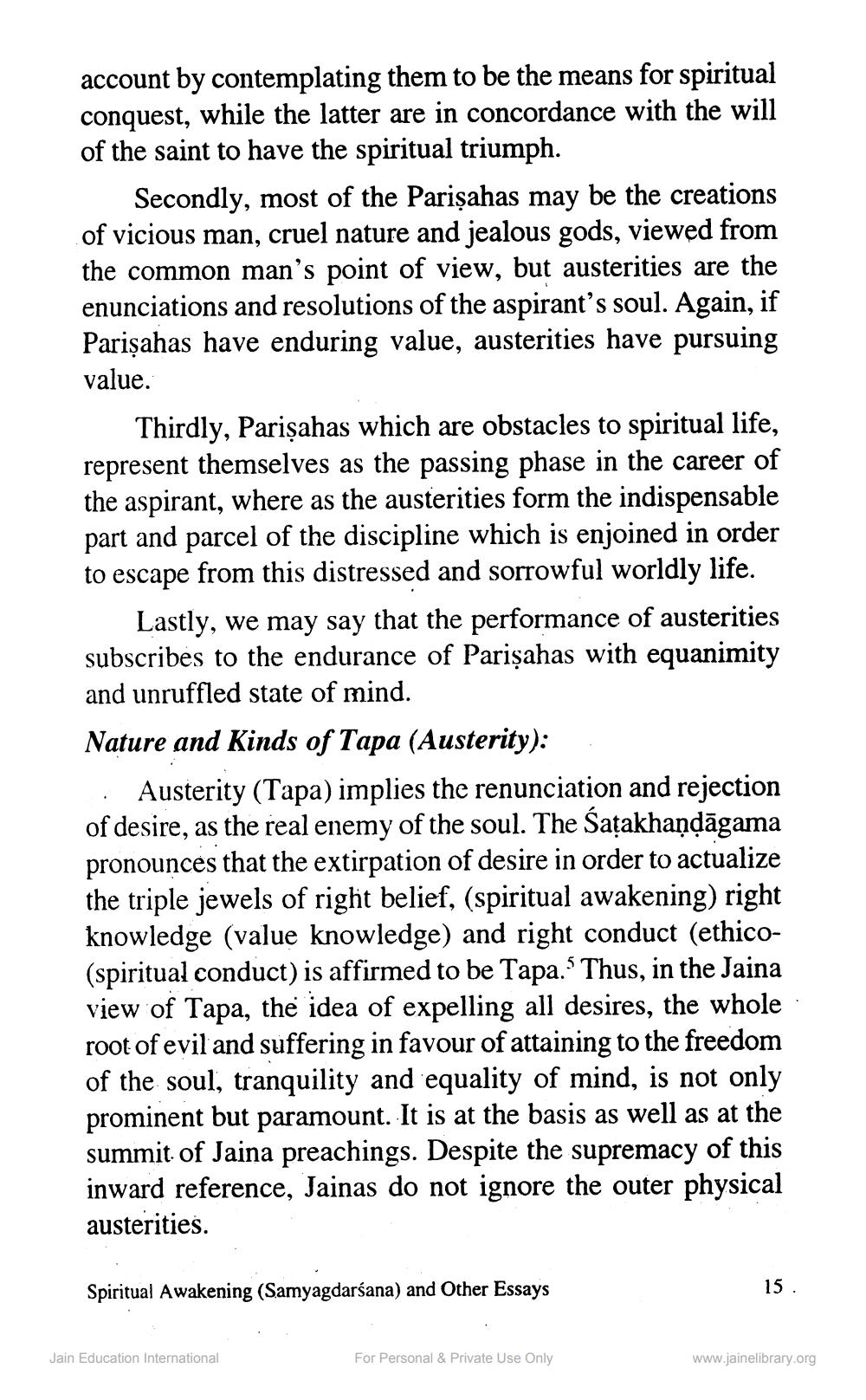________________
account by contemplating them to be the means for spiritual conquest, while the latter are in concordance with the will of the saint to have the spiritual triumph.
Secondly, most of the Parişahas may be the creations of vicious man, cruel nature and jealous gods, viewed from the common man's point of view, but austerities are the enunciations and resolutions of the aspirant's soul. Again, if Parişahas have enduring value, austerities have pursuing value.
Thirdly, Parişahas which are obstacles to spiritual life, represent themselves as the passing phase in the career of the aspirant, where as the austerities form the indispensable part and parcel of the discipline which is enjoined in order to escape from this distressed and sorrowful worldly life.
Lastly, we may say that the performance of austerities subscribes to the endurance of Parişahas with equanimity and unruffled state of mind. Nature and Kinds of Tapa (Austerity):
· Austerity (Tapa) implies the renunciation and rejection of desire, as the real enemy of the soul. The Satakhandāgama pronounces that the extirpation of desire in order to actualize the triple jewels of right belief, (spiritual awakening) right knowledge (value knowledge) and right conduct (ethico(spiritual conduct) is affirmed to be Tapa. Thus, in the Jaina view of Tapa, the idea of expelling all desires, the whole root of evil and suffering in favour of attaining to the freedom of the soul, tranquility and equality of mind, is not only prominent but paramount. It is at the basis as well as at the summit of Jaina preachings. Despite the supremacy of this inward reference, Jainas do not ignore the outer physical austerities.
Spiritual Awakening (Samyagdarśana) and Other Essays
15.
Jain Education International
For Personal & Private Use Only
www.jainelibrary.org




